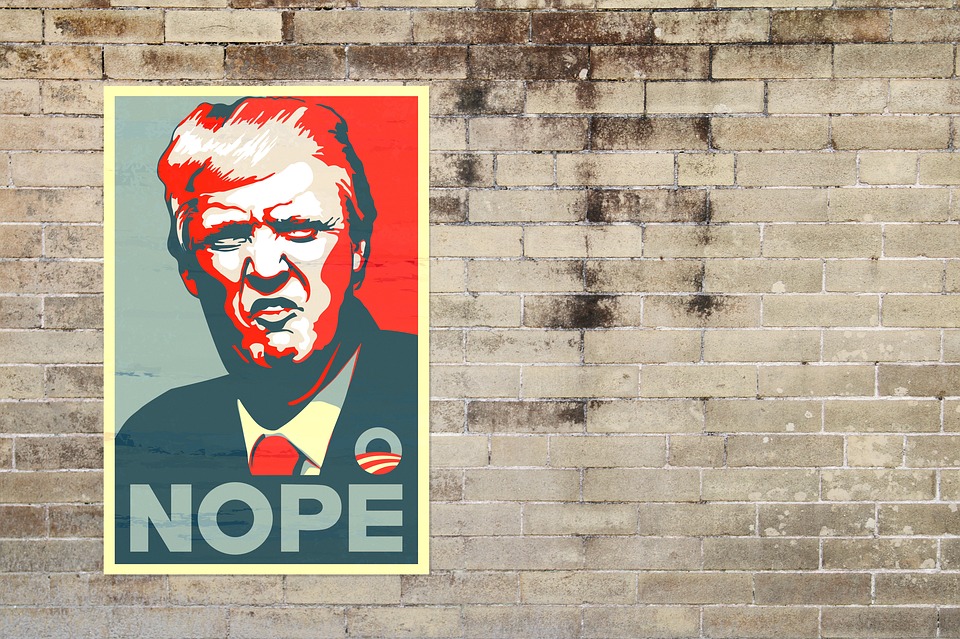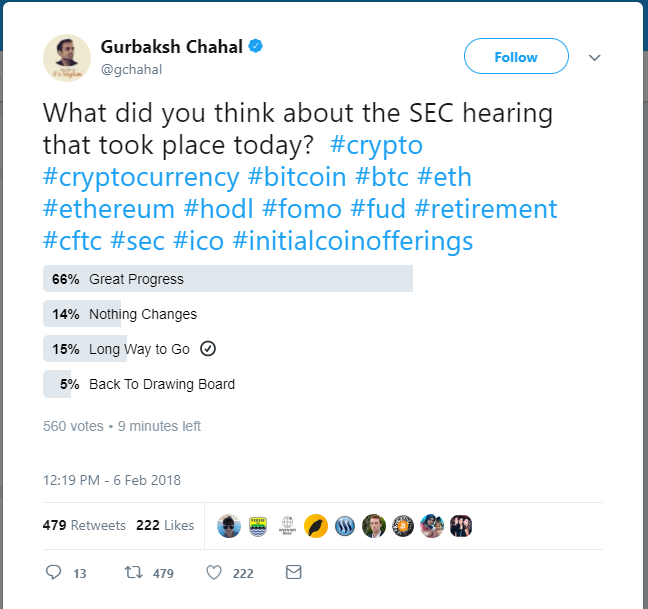The price of Bitcoin bounced after what investors perceived to be a positive senate hearing, and while there were worrisome hints, the exchange was broadly better than the misinformed, fumbling conversation it was expected to be.
The hearing was remarkable in its exposition of how the political class is approaching areas of technology it does not inherently understand, but was also truly unremarkable in some of the directions that were ultimately suggested. The whole conversation being attempted here comes down to the question of what gets regulated. And on that basis there was a clear intent displayed by the committee to increase the level and intelligence of regulation around cryptocurrencies.
For example, CFTC Chairman Christopher Giancarlo said “The CFTC can now obtain trading data and analyze it for fraud and manipulation… With Bitcoin futures we’re now having visibility into underlying markets and spot markets that we would not otherwise have.”
And SEC Chairman Jay Clayton said even called for a coordinated plan among states, federal regulators and the SEC and CFTC to address consumer naiveté, “I think our Main Street investors look at these virtual currency platforms and assume they are regulated in the same way that a stock is regulated and, as I said, it’s far from that and I think we should address that.”
But this was glossed over by much of the cryptomarket which saw a spike in price. The hearing was, as far as cryptoinvestors were concerned, a success, despite the fact that the technology was developed in large part to avoid state intrusion – libertarians represent a significant portion of cryptoinvestors – and this was the state clearly articulating a desire to get stuck in to the market.
But nonetheless:
The reason may be that the quality of discourse that the cryptomarkets had expected from the hearing lay far lower than was achieved. Beyond the general feeling that is clear among Millennial internet users, there are a number of clearly articulated examples of the tech literate describing a view that politicians don’t, won’t and can’t understand technology. This is a view not simply fuelled by ageism – though one suspects a certain element of that – but moreover that politicians are generally an out-of-touch and archaic type of people.
Politics, as a discipline and a career, is almost the polar opposite of tech; it requires an appreciation of things like hierarchy, tradition, status quo and slow change, things that are not just untechy, but would be anathema to anyone working in technology. And that’s before you chuck any ideological rhetoric about state regulation into the pot. Which bring us quite unavoidably to the moment, during a senate hearing, when a member of this dowdy and antiquated political class explained an element of internet culture. Well, the Twittersphere was impressed with that.
#Bitcoin price may be down… but listening to the Chairman of the CFTC explain what “HODL” means during a house committee hearing on #cryptocurrencies …. priceless. ?
— Gaƀe Higgins (@Crypto_Edge) February 6, 2018
While Giancarlo didn’t quite nail the description, he managed to display that he empathized with the sentiment of it. He spoke about how the idea of holding on to a cryptocurrency, regardless of price fluctuations, was driven by a sincere and deep belief in it as a project and in its endeavours. He clenched his fist tight, attempting to emote, while simultaneously failing to quite find the words to articulate that which he wished to emote. (Almost a truer sign of genuine emotion). And he held this up as a passion which deserved, or even required, respect.
From which point the entire cryptoinvestor community was knocked for six, perhaps without quite realising it. They had be wooed and charmed, and carried it off with nonchalance bordering on dismissive – as displayed in the above tweet – but they had been wooed and charmed nonetheless. The previous statements about the intent to regulate become glossed over, or even forgotten. And now all statements were up for positive interpretation.
Clayton, for example, stating “There are a lot of smart people who think there’s something to the value of cryptocurrency and the international exchange and I’m not seeing those benefits manifesting themselves in the market yet. I look at this from the perspective of Main Street investors and they should understand that.” could now be read as a statement about ‘a lot of smart people’ rather than a dismissive attempt to grab what Clayton perceived to be the higher – or at least the more important – road. Or street.
So, what to think? Well, an initial, and perhaps parenthetical thought is that this might be how politicians have responded to cryptocurrencies, which contain famously difficult and counter-intuitive ideas. But when it comes to regulating other areas which appear to be more accessible, despite being equally dense – like AI – tech may not be afforded the same humility by its co-combatants.
Overall it was depressingly refreshing to see politicians arrive at a conversation like this in full awareness of their ignorance and having made real attempts to not only get into the information, but also to accept that this was a different world full of its own culture and passions and drives, and needed to be understood on that level. In any case, that shouldn’t cloud an analysis of what was actually said during the hearing, which signalled a very clear intent to regulate, and regulate in a way which refuses cryptocurrencies the decency of being something fundamentally different, as summed up in a quote from Clayton during the hearing, “Those who engage in semantic gymnastics or elaborate re-structuring exercises in an effort to avoid having a coin be a security are squarely in the crosshairs of our enforcement provision.”
So it was good, but we’ve got a long way to go.


